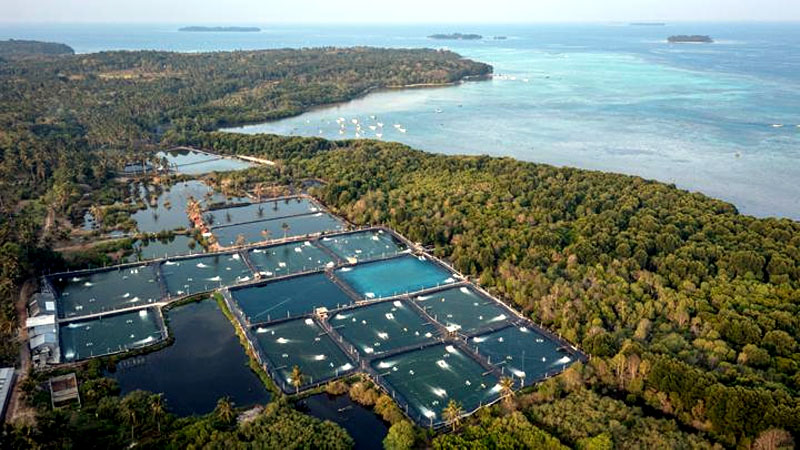Exclusive content

The Indonesian Forum for the Environment (Walhi) has raised concerns and criticism against the government’s proposed shrimp estate project. The environmental organization draws parallels between this initiative and the previously unsuccessful food estate program, emphasizing potential threats to the country’s mangrove ecosystem.
Similarities to Failed Food Estate Program
Parid Ridwanuddin, Walhi’s Coastal and Marine Campaign Manager, expressed skepticism about the shrimp estate project, highlighting its conceptual similarities with the failed food estate program. The latter, originally implemented in forested areas, faced ecological damage and overall failure. Parid contends that replicating this concept in coastal regions will likely result in a recurrence of the previous shortcomings.
Focus on Whiteleg Shrimp
The shrimp estate project places a primary emphasis on whiteleg shrimp, a commodity with high demand both domestically and abroad. Notably, one of the active projects is located in Kebumen, Central Java. Despite the economic potential, environmentalists worry about the impact on coastal ecosystems.
Ministry of Maritime Affairs and Fisheries Inaugurates Project
Adding to the controversy, the Ministry of Maritime Affairs and Fisheries (KKP) recently inaugurated a shrimp estate project in Sumba, East Nusa Tenggara. Parid Ridwanuddin expressed concerns about the extensive coastal area being cleared in Sumba, suggesting that such actions could contribute to the shrinking of the mangrove ecosystem.
Irony in Government Policies
One of the striking aspects of this critique is the perceived irony in the government’s policies. Parid Ridwanuddin pointed out the inconsistency between President Joko Widodo’s emphasis on mangrove conservation and the approval of the shrimp estate project. Indonesia’s recent election to co-chair the 28th United Nations Climate Change Conference (COP 28) in Dubai underscores the country’s global commitment to leading efforts in preserving mangrove ecosystems.
Conflicting Domestic Policies
Walhi contends that domestic policies on issues such as mangrove conservation and the shrimp estate project are in direct conflict with each other. This misalignment raises questions about the coherence of Indonesia’s environmental initiatives, especially given its international leadership role in addressing climate change and preserving crucial ecosystems like mangroves.